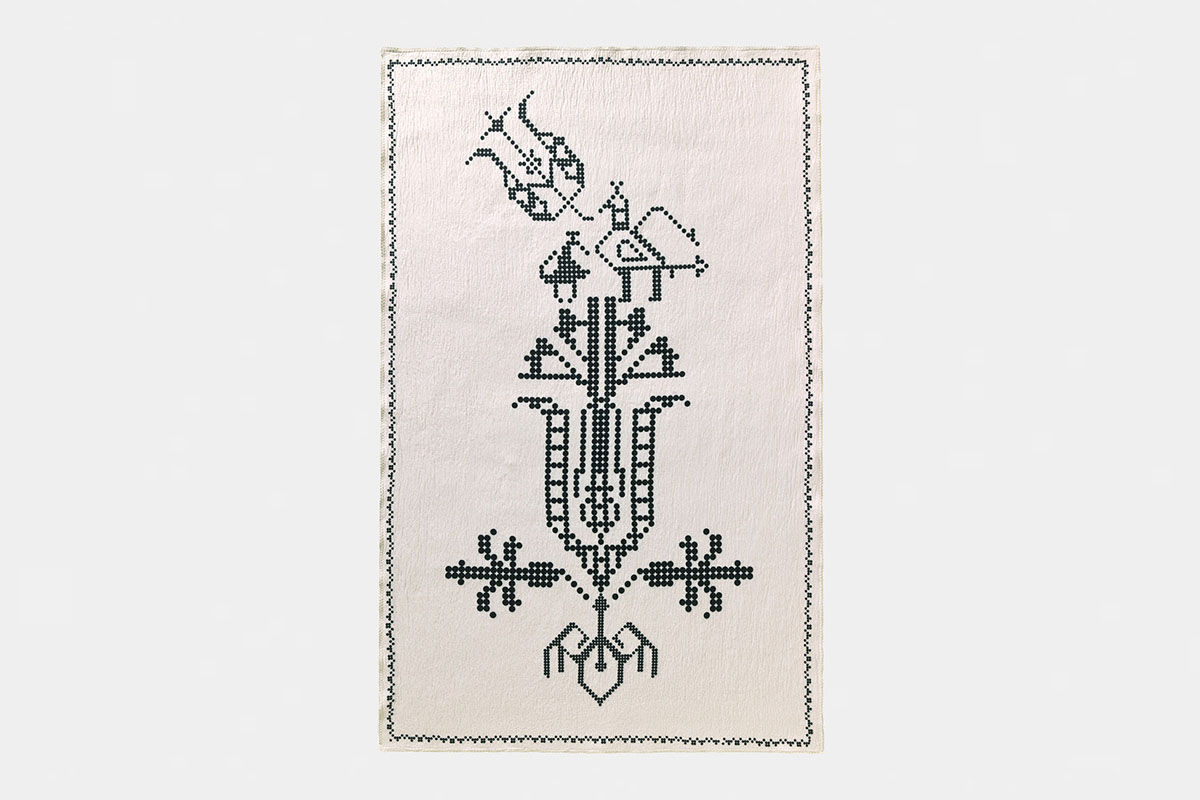

Perusing design from the Greek isles for our issue this week, we stumbled on Postfolk, makers of towels for the bath (and beach) that are digitally printed with motifs from Greek folklore and fables: ancient stories rendered in modern form.
Postfolk’s towels are made in Greece from refined cotton yarns “with different colored hand-stitched finishing for an extra note of luxury” and “digitally silk screened printed with hypoallergenic water-based inks” with no threat of fading.
The Atlas towel 125 is part of the Totems on the Beach collection which draws on Greek folklore archetypal symbols found in decorative tapestries such as...
...the traditional Karpathian style Stylomantila This particular beach towel brings Luck Joy Abundance Symmetry and Harmony and supports you in all acts of relaxation procrastination and flirtation
The After Sun towel from the Talisman collection is €125.
The Chūrippu One-Sided Love towel (€125) features yellow tulips; it’s part of a collection “full of colors and secret meanings” called Give Me Flowers, which combines Greek folk flowers with hanakotoba, the Japanese tradition of the language of flowers.
Another from the Totems on the Beach collection: the Coco beach towel (€125).
Postfolk’s Suite collection employs the symbol of the peacock.
The most unique characteristic of peacocks is that they can transform ‘negative energy into light.’ We use them for newlyweds to bring Immortality, Rebirth, Duality, Royalty, Awakening, Protection, and Togetherness.” This is the I’ve Crossed Oceans of Time to Find You towel, a lovely wedding present; €125.
And the Under Your Spell towel from the same collection (€125).
The Aegean Morning towel from the Totems in the Bath collection (€125).
And one of Postfolk’s yoga towels, the Communicate towel (€75).

